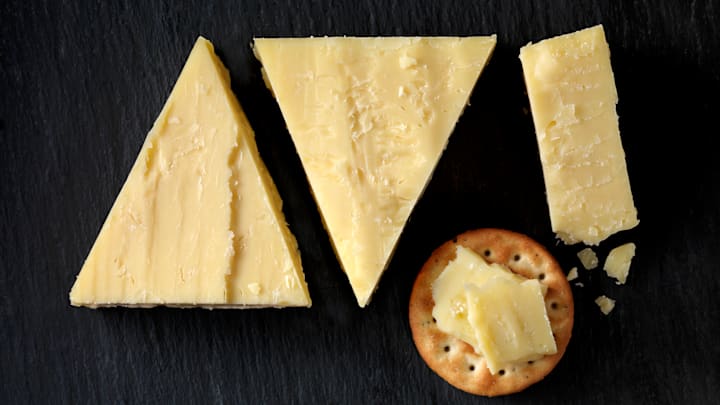Everyone has their cheese preference, from American to giant artisanal wheels to shredded mozzarella. But for some, there’s nothing better than the basics. On the cheese spectrum, that’s likely cheddar, the firm block that fuels everything from soup to cracker spreads.
What gives cheddar its unique appeal? And why does it taste a little differently depending on the source? Science may have an answer.
In research published in the journal Nature Communications, and reported by Smithsonian Magazine, microbial ecologists at Utrecht University in the Netherlands examined the unique bacterial identities of cheddar. (All cheese is made by introducing bacteria to milk, which feeds off the sugar and creates lactic acid.) The researchers looked at existing cheddar starter cultures and also made their own using a variety of microorganisms to see which gave cheddar its unique flavor.
After a year of ripening, there was a clear winner: Streptococcus thermophilus, which led to the highest levels of lactic acid. Lactococcus cremoris was also singled out for reducing chemicals diacetyl and acetoin, which create an off-taste when there’s too much of either present. Other strains seemed to make no difference whether they were included or not.
"When we did the experiment, it was obvious that part of the community clearly benefited from the presence of another member—Streptococcus thermophilus—and also the metabolic profile was significantly different when we removed specific members of the community, but not others," Chrats Melkonian, the study's lead author, told Chemistry World.
It’s possible that by understanding how different bacteria interact, cheesemakers may be better able to fine-tune flavors.
Cheddar cheese dates back to the 12th century, when residents in the English village of Cheddar used nearby caves to age their cheese. It eventually grew so popular that by the 1600s, King Charles I was one of the few people who could get his hands on it.
